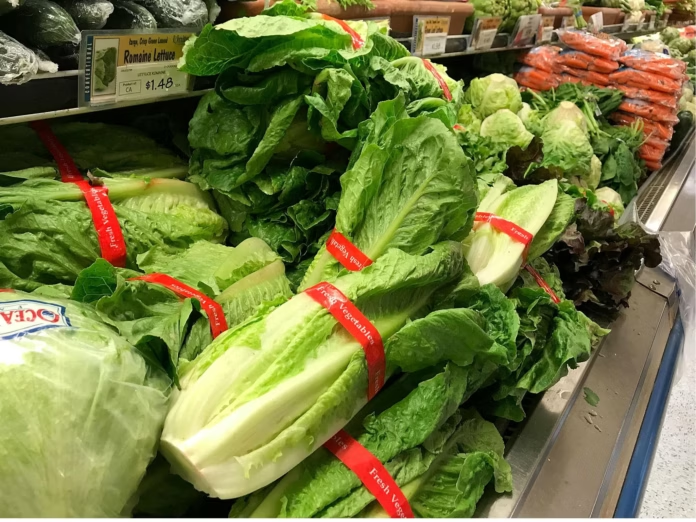Late 2024 saw a severe E. coli outbreak quietly strike individuals in 15 states across the U.S. Tied to romaine lettuce, the bacteria infected a minimum of 89 individuals and caused one fatality. Ironically, consumers were never warned. The Food and Drug Administration (FDA) decided not to warn consumers, stating there was no longer any threat.
Illness and Impact Across States
The epidemic had a broad impact, with individuals in 15 states getting ill. A 9-year-old Indiana boy was hospitalized due to severe kidney failure. A 57-year-old Missouri woman got ill after consuming a salad at a funeral. These instances were not isolated—numerous others experienced hazardous symptoms, with some requiring dialysis. Still, the FDA remained quiet.
Also read: Severe Thunderstorm Warning In Southeast Wisconsin: Destructive Hail Warning Issue
No Public Warnings or Product Recall
Typically, when a foodborne illness is identified, the FDA issues a public warning, warns consumers, and even sometimes recalls the product. But not this time. The FDA subsequently justified that by the time it had confirmed the cause of the outbreak, the tainted lettuce was no longer on store shelves. They asserted that releasing a warning would create unnecessary alarm without providing any genuine protection.
Transparency Questioned
This ruling alarmed others. Consumer advocacy groups and a few experts claim that the public has the right to know about foodborne sicknesses whenever they happen—regardless of the availability of the product. Transparency creates public trust and informs consumers on how to remain vigilant in the future, they argue. In other cases in the past, the FDA has identified the companies concerned so that the public would avoid related products.
Taylor Farms Identified in Lawsuits
Although the FDA did not mention a company, court filings identify Taylor Farms, a major California salad manufacturer. Several lawsuits have been filed by victim families, alleging the firm sold contaminated lettuce. One was filed on the Indiana boy’s behalf, alleging the product was “defective and unreasonably dangerous.
Taylor Farms denied all allegations. The company said its testing did not detect any indication of E. coli contamination and suggested that the lettuce must have become contaminated after leaving their plant.
FDA’s Legal Limitations
The FDA later told reporters it was legally restricted from naming companies unless it had clear, confirmed evidence. They explained that under U.S. law, they cannot release “confidential commercial information.” That includes details that might damage a company’s reputation if not 100% proven. While this protects businesses, some argue it puts consumers at risk.
What Can Consumers Do?
Although this particular outbreak has passed, E. coli continues to be an everyday occurrence among leafy greens. Officials say to thoroughly wash lettuce, place it in fresh containers, and adhere to food safety. Shoppers must also check FDA and CDC websites for food recall postings.
A Lesson in Food Safety
This epidemic illustrates the disconnect between legal boundaries and public health. Although the FDA might have acted according to procedure, the absence of a public warning has been controversial. Individuals who were impacted by the epidemic believe that they were kept in the dark, with no opportunity to defend themselves.
Since food keeps being transported long distances before it shows up on our plates, episodes such as this can occur. Open communication between agencies, business, and citizens is key to keeping people safe.
Also read: China Halts Liquefied Gas Imports from the US – Key Reasons & Impact
Conclusion
This E. Coli outbreak is huge and it can impact a lot of lives. Hence the consumers are advised to be alert and keep following FDA guidelines to be on the safer side. With that being said, FDA or any other authority must intervene to stop the epidemic caused due to foods for the health of the consumer.








